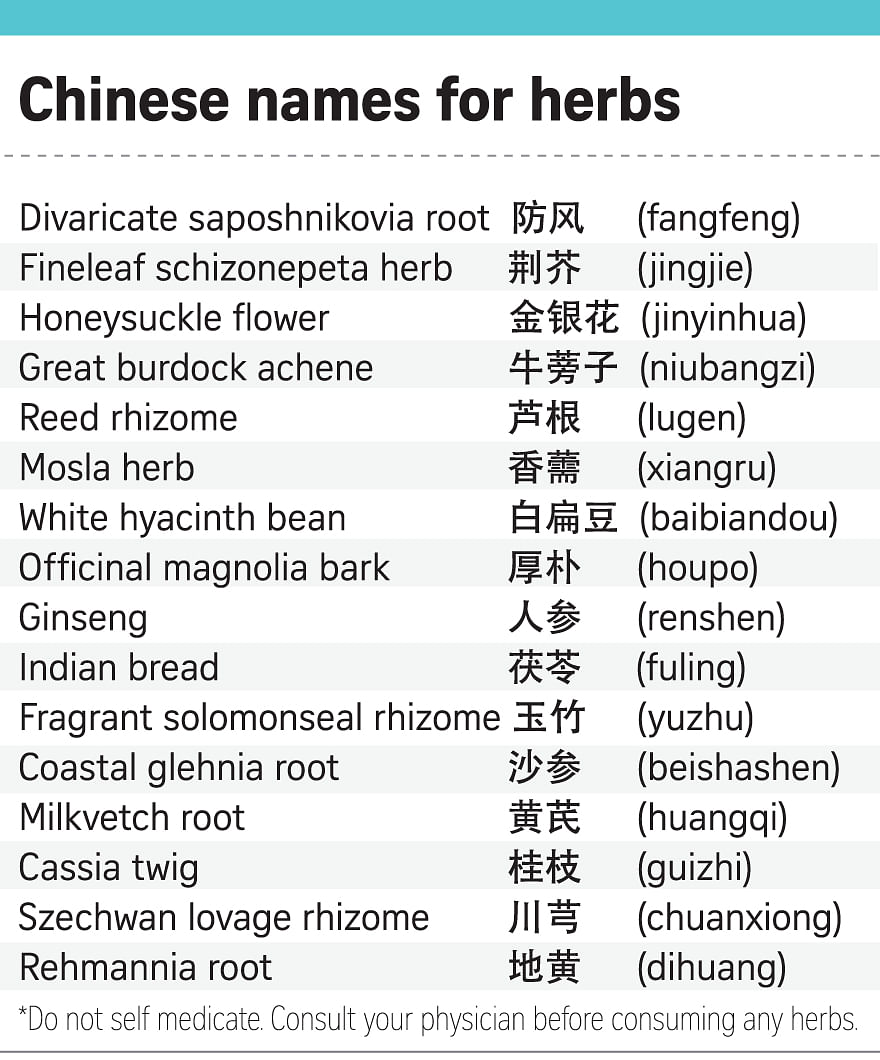Sinseh Says
Boosting a pre-term child's defences
Sign up now: Get ST's newsletters delivered to your inbox
Follow topic:
Q My son was born premature at 34 weeks via a caesarean section as I had high blood pressure during pregnancy. At birth, he could breathe independently because I was given two injections to help develop his lungs before my surgery.
I suppose the medicine worked, but I think this accelerated development may have caused his lungs to not develop fully. After birth, he was very prone to flu and coughs.
His coughs usually last for two to three weeks. I think it may be due to weakness in his lungs. What can I do to help strengthen his lungs?
A Premature infants are born before 37 weeks of pregnancy, which normally lasts 40 weeks. Many have medical, developmental or behavioural problems that continue into childhood or are permanent.

Your son, who was born at 34 weeks, is considered a moderate to late pre-term baby.
His lungs may therefore not be fully mature.
In traditional Chinese medicine (TCM), a premature baby prone to flu and cough is likely to have deficiencies in his lungs, spleen and kidneys. Other reasons include a lack of qi (vital energy), blood, yin and yang.
Yin is the element that cools organs, while yang heats the organs.
Your child may also be affected by external pathogens such as wind, cold, dampness and phlegm.
LACK OF DEFENCES
According to TCM principles, the lungs spread the defensive qi to the body's surface to protect the person against the invasion of pathogens. Weakened lungs - for instance, due to premature birth - are therefore vulnerable to external pathogens, which disturb the flow of qi in the lungs.
This causes abnormal secretions in the respiratory tract, triggering flu and cough. If your child is affected by wind and cold, he will have a severe aversion to cold and a runny nose with clear nasal discharge.
His cough will involve an itchy throat and clear mucus.
If wind and heat have invaded your child's body, his flu will come with fever and a blocked nose with turbid nasal discharge. He may cough up sticky or yellowish phlegm and have a sore throat.
Heat and dampness, on the other hand, will give rise to flu with a slight aversion to the wind, a cough with sticky phlegm and runny nose with turbid discharge.
The spleen is another possible source of the problem. In TCM, this organ transforms nutrients from food into qi and blood.
Being born prematurely may result in dysfunction of the spleen, causing the body to lack qi and blood. This will weaken the other organs and, in turn, affect the respiratory system.
Insufficient qi will trigger flu with fever, an aversion to cold, sweating and fatigue. He may be coughing, but is unable to expel the phlegm.
Meanwhile, a lack of blood causes flu with fever, headaches and a pale complexion. One's respiration also depends on the mutual regulation between the kidneys and lungs.
In TCM, kidney yin and yang is the root of all yin and yang for the organs. Kidney yin moistens and nourishes the body, while kidney yang provides warmth.
A lack of yin leads to flu with fever, a fear of wind and cold and a dry cough with little phlegm.
A lack of yang triggers flu with fever, cold limbs and a cough with clear mucus.
Depending on the source of your child's lung weakness as outlined above, Chinese herbs can target the specific organs or pathogens.
To eliminate wind and cold, take divaricate saposhnikovia root and fineleaf schizonepeta herb.
Wind and heat can be tackled with honeysuckle flower, great burdock achene and reed rhizome.
If your child is affected by dampness and heat, take mosla herb, white hyacinth bean and officinal magnolia bark.
To boost qi in the body, try ginseng and Indian bread. Meanwhile, fragrant solomonseal rhizome and coastal glehnia root can help to increase yin, while milkvetch root and cassia twig can boost yang.
If the problem is linked to insufficient blood, herbs like szechwan lovage rhizome and rehmannia root can help to improve this.
Other treatments include applying herbs on the belly button, herbal baths and herbal steaming, as well as infant massage, scrapping and cupping therapy.
WATCH THE TEMPERATURES
Try not to expose your child to drastic temperature changes, such as abruptly stepping out into the hot sun from an air-conditioned room.
Keep him warm in cold environments. When he perspires, wipe off his sweat rather than allow it to air-dry. Do not take him to rooms with air-conditioning or fans until he has cooled down.
His diet should comprise of easily digestible food, such as porridge, fruit, soya bean milk and fish, to strengthen his lungs and spleen. Avoid heavy meals, as well as raw, cold, oily and spicy foods.
Lastly, with his weak constitution, you may want to consider giving him a flu vaccination.
LIM LAY BENG
Traditional Chinese medicine practitioner at YS Healthcare TCM Clinic at The Adelphi.
Traditional Chinese medicine practitioner at YS Healthcare TCM Clinic at The Adelphi.

